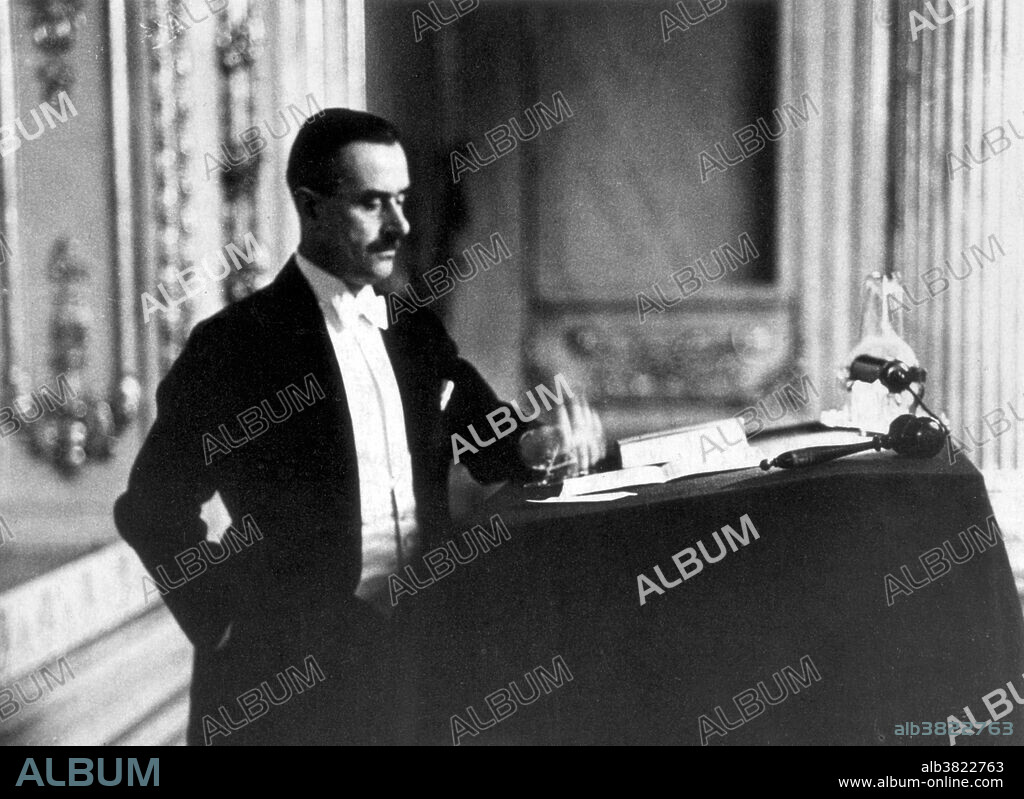alb3822763
Thomas Mann, German Author

|
Add to another lightbox |
|
Add to another lightbox |



Title:
Thomas Mann, German Author
Caption:
Mann photographed in Stockholm, 1929. Thomas Mann (June 6, 1875 - August 12, 1955) was a German novelist, short story writer, social critic, philanthropist, essayist, and Nobel laureate, known for his series of highly symbolic and ironic epic novels and novellas, noted for their insight into the psychology of the artist and the intellectual. His analysis and critique of the European and German soul used modernized German and Biblical stories, as well as the ideas of Goethe, Nietzsche, and Schopenhauer. He married Katia Pringsheim, daughter of a wealthy, secular Jewish industrialist family, in 1905. She later joined the Lutheran faith of her husband. The couple had six children. He was awarded the Nobel Prize in Literature in 1929, principally in recognition of his popular achievement with the epic Buddenbrooks (1901), The Magic Mountain (Der Zauberberg 1924), and his numerous short stories. When Hitler came to power in 1933, he fled to Switzerland. When World War II broke out in 1939, he emigrated to the United States, but returned to Switzerland in 1952. He died in 1955 of atherosclerosis at the age of 80. Mann's diaries, unsealed in 1975, tell of his struggles with his bisexuality,which found reflection in his works.
Credit:
Album / Science Source / New York Public Library
Releases:
Model: No - Property: No
Rights questions?
Rights questions?
Image size:
3900 x 2840 px | 31.7 MB
Print size:
33.0 x 24.0 cm | 13.0 x 9.5 in (300 dpi)
Keywords:
1929 • 20 XX TWENTIETH CENTURY • 20TH CENTURY • 20TH • AUTHOR • BISEXUAL • BW • CELEBRITY • ESSAYIST • FAMOUS • FIGURE • GERMAN • GERMANS • HISTORIC • HISTORICAL • HISTORY • IMPORTANT • LITERATURE • MALE • MAN • MANN • MEN • NOBEL LAUREATE • NOBEL PRIZE LAUREATE • NOBEL PRIZE RECIPIENT • NOBEL PRIZE WINNER • NOBEL PRIZE • NOBEL RECIPIENT • NOBEL WINNER • NOBELIST • NOTABLE • NOVELIST • PEOPLE • PERSON • PERSONALITIES • PERSONALITY • PHILANTHROPIST • PHOTO • PHOTOGRAPH • PORTRAIT • POTRAIT • SOCIAL CRITIC • STOCKHOLM • THOMAS MANN • TWENTIETH CENTURY • WELL-KNOWN • WRITER
 Pinterest
Pinterest Twitter
Twitter Facebook
Facebook Copy link
Copy link Email
Email

